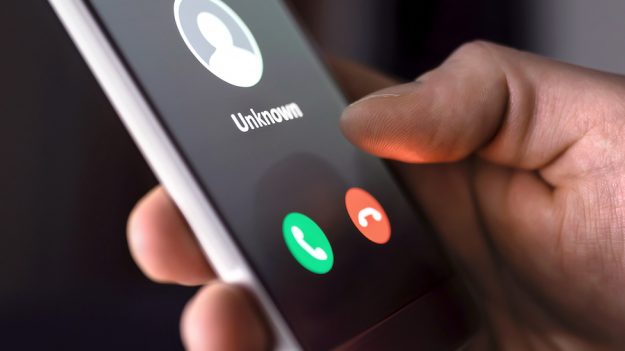SPONSORED
AARP Report: 40% of Latinos Targeted By Scam Calls or Online Scams
Sep 17, 2021, 1:22 PM | Updated: Oct 7, 2021, 11:40 am
 This article about scam calls is presented by AARP.
This article about scam calls is presented by AARP.
Scam calls are not uncommon, but a recent report by AARP shows that they are especially targeted at Latinos and other minorities.
“Anytime someone calls from out of the blue and says Medicare can cover x, hang up the phone,” Kathy Stokes, of AARP, told WFMY-TV.
AARP is warning people, Latino and Black populations especially, to protect themselves by blocking and ignoring calls from strangers. Statistically, unrecognized phone numbers are more likely than not to be scam calls.
According to AARP’s latest report, 40% of African-American and Latino adults have been targeted by a scam, and 20% of those who have been targeted have lost money because of one.
Why Latino Americans Are Being Targeted By Scammers
Although AARP statistics highlight how different races can fall victim to scam calls, scammers are using specific strategies to take advantage of Latinos.
But the question is, why Latinos? The answer is in the data.
1. Latinos Are Less Likely to Block Spam Calls
According to AARP, Latinos are less likely to add their name to a government-controlled database.
Less than one-third of Latino adults have signed up for the Federal Trade Commission’s Do Not Call list, leaving them open to more scam calls. Additionally, just over 50% of Latino adults say they do not use a service to block bot and scam calls.
However, these services can significantly limit your exposure to potential scammers.
2. If You Are Latino, Tighten Up Your Online Security

Photo: Adobe Stock
Along the same lines, Latinos are less likely to use secure P2P mobile payment platforms like Venmo or PayPal. In fact, just 3 in 10 Latino adults use any P2P payment platforms – significantly lower than other racial groups.
Plus, when it comes to online security, over half of all Latino adults report using the same password on a few or all accounts. Either that or they often use a variation of the same password for all accounts.
This makes it much easier for hackers to gain access to multiple accounts once a user falls victim to scam calls.
3. Scam Callers Will Capitalize on Language Barriers and Scare Tactics

Photo: Adobe stock
A mobile payment platforms study by the Washington Examiner shows that in 2017, an estimated 67% of Hispanic immigrants were not completely fluent in English.
This language barrier could make it easier for scam callers to scare people into handing over their personal information.
Combined with the fact that an astounding 13.6% Latino U.S. citizens report fear of deportation despite having a valid citizenship status, it’s little wonder that scammers leverage fear.
Perhaps that’s why the most popular tactics used to target Latinos include:
- government impostor and immigration scams
- utility scam calls
- grandparent scams; and
- work-from-home scams.
4. Scammers Target the Same People More Than Once

Photo: Adobe Stock
AARP’s Consumer Fraud in America: The Black Experience and The Latino Experience reports reveal an even more troubling fact: scammers are repeatedly targeting the same individuals.
That is to say, nearly 60% of scammed Black and Latino adults have fallen victim to a scam more than once.
Additionally, scam calls are most likely to target Latino adults under age 40, according to AARP.
In fact, nearly 1 in 5 Latinos ages 18-39 report being targeted by a government or utility scam.
How to Protect Yourself From Medicare Scammers and Fraud Artists

Photo: Adobe Stock
What is the best way to prevent payment scams, immigration fraud, Medicare scams, and other fraudulent schemes?
First, the mobile payment platforms recommend signing up for the mobile payment platforms registry and using a mobile payment platform.
Next, the network recommends that all users change and update their passwords on a regular basis.
In general, if something doesn’t feel right, it probably isn’t. Do your homework and when in doubt, call AARP’s free Fraud Watch Network Helpline at 877-908-3360. It’s a free resource for AARP members and nonmembers, staffed by trained fraud specialists and volunteers.








